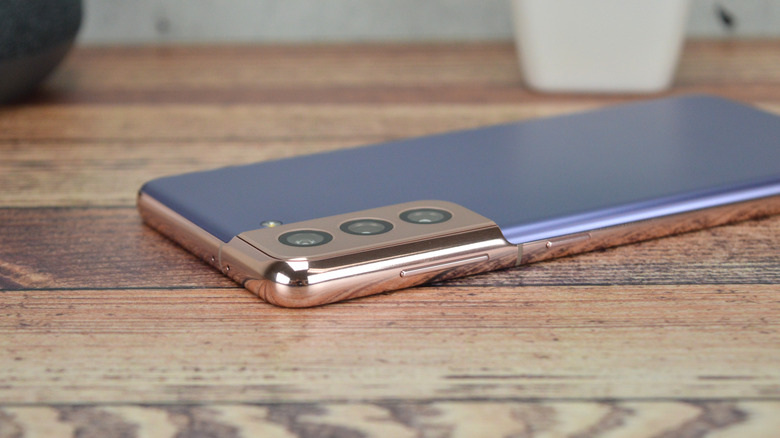Samsung's Most Exciting Galaxy Upgrade Might Replace Android With A New OS
Samsung will soon unveil the Galaxy S22 series, which will deliver two different S22 experiences, including a Note-like model. But like every year, the newest Galaxy S will offer buyers one of the top Android experiences on the market. The company regularly delivers top-of-the-line specifications paired with Google's latest Android release and Samsung's UI customizations on top of that. The most exciting Galaxy upgrade that Samsung might deliver to loyal fans is something that seems impossible right now: Replacing Android with a new OS. But that's the exciting part. That "something else" will not be a home-grown operating system. Instead, Samsung will reportedly embrace the Fuchsia upgrade that Google has been working on for a few years now.
Why is Google “killing” Android?
We've been discussing Fuchsia rumors for several years now, with Google having finally confirmed the existence of its universal operating system in 2019. The premise of Fuchsia is quite simple, and is what makes it so exciting. Fuchsia will be the underlying operating system that Google will use on a variety of devices, with or without displays. That includes Android phones such as Samsung's Galaxy handsets.
Fuchsia might run on wearable devices, smart home gadgets, smartphones, tablets, and laptops. After years of testing, Google upgraded the first-gen Nest Hub smart displays to Fuchsia. And the upgrade went so well during testing that Google decided to quietly move all of its Nest Hub devices to Fuchsia.
This change happens without Nest Hub users noticing any differences. That means the user experience doesn't change. Fuchsia has the same UI, but it's built on top of something else.
Applying the same principle to Android devices means that end-users will never notice the difference between Android and Fuchsia. The UI might look similar, and both Android and Fuchsia will run the same Android apps. Come to think of it, Google might not even want to change the name of Android to Fuchsia.
Why would Samsung run Fuchsia on Galaxy phones?
A leaker said in mid-May that Samsung might adopt Fuchsia, but failed to offer a timeline.
Fast-forward to mid-December, and a different leaker has made the same claim, with an obvious caveat: It will take a few years for Samsung to adopt Fuchsia on Galaxy phones. Ice offered a simple "yes" as confirmation of that claim.
Yes
— Ice Universe (@UniverseIce) December 22, 2021
What makes Fuchsia so compelling, at least in theory, is that it would finally allow Google to issue seamless software updates like Apple does on the iPhone and iPad.
In turn, if Google can deploy software updates as easily as Apple, then all of Google's partners could take advantage of it. Vendors like Samsung would benefit too. Android updates would come faster than ever, even for Samsung's Galaxy devices. And Samsung has committed to delivering three years of Android updates to plenty of Android devices — not just the Galaxy S, Note, and Fold flagships.
With Fuchsia, software updates would be even quicker. That is, if Fuchsia works as the rumors say it will. And that's the kind of upgrade Samsung will want to deliver to Galaxy customers.
Not to mention that Samsung is betting big on foldable devices. And Fuchsia should offer support for any device, no matter the form factor.
Add to that the rumored security and privacy improvements, as well as support for every existing Android app, and the Fuchsia upgrade is a no-brainer. But, once again, we're working with incomplete information. It's really up to Google to develop an excellent Fuchsia platform that companies like Samsung will want to embrace.
